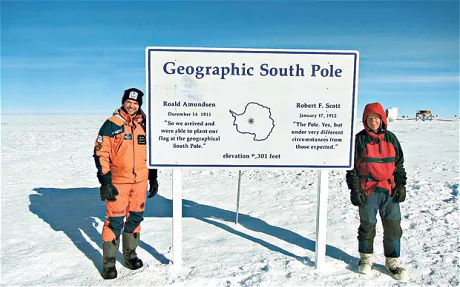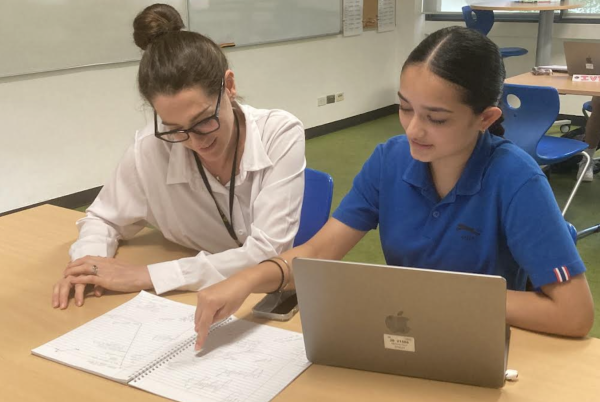STEM: Roots of Learning
STEM courses and careers are more than just job opportunities: they give you a chance to make the world a better place.

From the water we drink to the phone in our hands, the potential for growth pulses through the veins of our society. Science, technology, engineering, and mathematics, also known as STEM. It is a branch of academics that does not simply design the societies we live in but explains our world turning on its axis, maps the stars, and deconstructs our identity. It touches on places beyond our line of sight and beyond the realm of our imagination.
Henry Evans, marine biologist, specialist in sustainability education, and world traveler, visited ISB to conduct seminars for elementary, middle, and high school students surrounding this idea of science, sustainability, and global citizenship. This is an idea that ISB has always included in their mission statement since the doors first opened and is fostered by each and every student to promote a sense of selflessness by giving back to the community, and serves as a reminder that we have a greater purpose.
Evans started out with a bachelor’s degree in marine biology and later received a masters in climate change science before starting his journey in teaching. During the interview, he spoke about the process of choosing a STEM career and the importance of the field itself.
Within any realm of academics, competition is prominent. Because students are constantly competing for top marks, it is easy to forget what originally sparked that preliminary thirst for knowledge in their minds. Henry Evans commented on the internal pressure he faced trying to break into the marine biology field as a soon to be college freshman, stating, “there are so many different areas of marine biology. And it is very difficult to get into one. There are a lot of people trying to do particular jobs.” It is important to specialize in what it is you are interested in; STEM is a broad field.
“You have to work very hard, be very passionate,” Evans remarked highlighting his struggle to balance his social life with maintaining high marks. It is passion that keeps the world turning; it is drive that allows a student to excel in a field. How can you master something that does not spark some sort of interest in you, that does not make waking up at 5:00 in the morning worth it?
Additionally, when starting in a STEM field, experience and service work is essential! Evans states, “it is very, very difficult to get into it. You need to have volunteering experience, and a good CV.” STEM is not merely a nerd in glasses behind a computer, or an individual in a white coat mixing precious earth metals in a beaker. STEM is field work. It is taking a step beyond and getting your feet wet.
Many individuals often stray from STEM fields as they worry they won’t be able to see their work in action. Evans, now teaching students about sustainability said, “I work with different age groups, and especially with younger students, I just mention it very briefly and talk about how one person can make a difference. It is getting better.” It is this misconception that turns many in the other direction.
He took his passion for science, the environment, and traveling and turned these manifestations in his mind to reality and is changing the education system forever, planting this seed in the future generation.
Mr. Evans accomplished his goal of making a mark on the world. He spoke of his travel experiences working in the field.
“I would draw back to my time in Antarctica. I spent two months there and I was part of an expedition to ski to the south pole and my main memory really is on day 7 on our 14-day trek, we hadn’t phoned base camp in time. We were very tired. And a plane was sent out to try and find us and I remember coming out and waving at the pilot who dipped his wings to show he had seen us. I remember standing there, and I was crying. I hadn’t seen anyone else for seven days, and that was an amazing experience.”
His studies led him on an amazing journey that altered his perspective forever and really kick-started his passion for teaching, instilling the key of the future in students across the globe.
“The STEM field as a whole is male dominated; girls need role models in the field,” Evans said when asked about the imbalance in gender representation in the STEM fields, a female involvement of only 29%. Even today, there is an underlying stigma surrounding certain careers for women. This societal pressure takes a toll on these young women wanting to break into the STEM community. But perspective turns the wheels of innovation, and the field needs something fresh and inspiring to keep up with an ever-changing society. Women must be encouraged from a young age. What often stops females from taking part in the field is teasing in school when they take part in societally “male dominated” courses such as advanced math and science. Fighting for this respect and equity can often be detrimental to the spirit of learning and can often lead to a loss in interest. “It is a fun career, and you can make a big difference!” Evans remarks.
Henry Evans can truly serve as a role model for anyone wanting to make their mark on the world; to take their passion and run with it. When asked something he would like to tell his teenage self, he said, “I have three things. They are to work hard, be yourself, and to have fun. Three very simple things but if you can do all three everyday you will be happy and successful.”
Henry Evans Contact Info:
Science education business
Magnificent Ocean
www.magoce.com
Follow @MagOceEducation on Twitter to continue your learning
Climate Change, Sustainability, Marine Biology and Exploration
Madison Mehta









